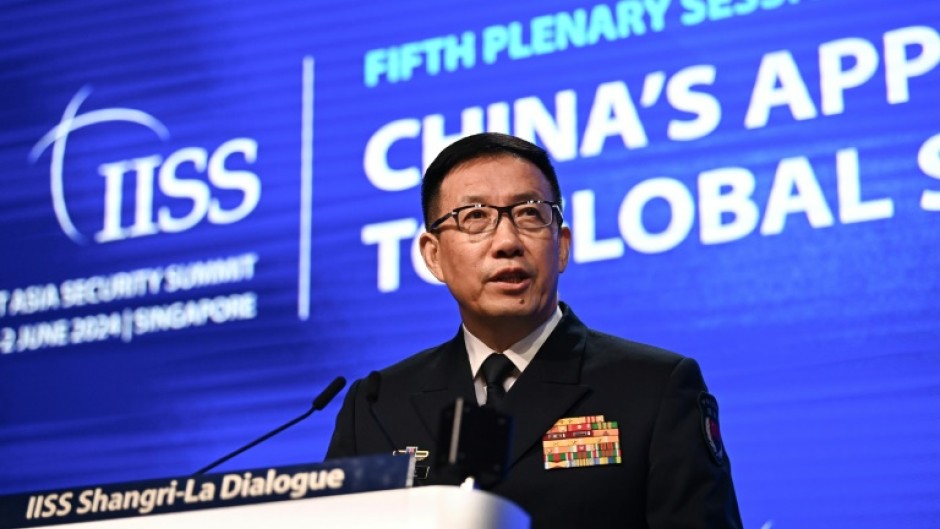BEIJING - Chinese Defence Minister Dong Jun warned Sunday his military is ready to "forcefully" stop Taiwan independence but called for greater exchanges with the United States.
The remarks at an annual security forum in Singapore followed the first substantive face-to-face talks in 18 months between the two countries' defence chiefs.
"We have always been open to exchanges and cooperation, but this requires both sides to meet each other halfway," Dong told the Shangri-La Dialogue where he met with US Defense Secretary Lloyd Austin on Friday.
"We believe that we need more exchanges precisely because there are differences between our two militaries."
Dong and Austin met for over an hour at the luxury hotel hosting the forum, which is attended by defence officials from around the world and in recent years has been seen as a barometer of US-China relations.
After the meeting, Austin said that telephone conversations between US and Chinese military commanders would resume "in the coming months", while Beijing hailed the "stabilising" security relations between the countries.
This year's Shangri-La Dialogue comes a week after China held military drills around self-ruled Taiwan and warned of war over the US-backed island following the inauguration of President Lai Ching-te, who Beijing has described as a "dangerous separatist".
"The Chinese People's Liberation Army has always been an indestructible and powerful force in defence of the unification of the motherland, and it will act resolutely and forcefully at all times to curb the independence of Taiwan and to ensure that it never succeeds in its attempts," Dong told the forum on Sunday.
"Whoever dares to split Taiwan from China will be crushed to pieces and suffer his own destruction."
Taipei hit back, describing Chinese officials' comments at the forum as "irrational" and insisted it would "work tirelessly for peace and stability in the Taiwan Strait", according to a statement from Taiwan's presidential office.
On the South China Sea, which China claims almost entirely and where it has been involved in confrontations with Philippine vessels, Dong warned of "limits" to Beijing's restraint.
"China has maintained sufficient restraint in the face of rights infringements and provocation, but there are limits to this," Dong said.
- Flashpoint disputes -
President Joe Biden's administration and China have been stepping up communication to ease friction between the nuclear-armed rivals, with Secretary of State Antony Blinken visiting Beijing and Shanghai last month.
A key focus has been the resumption of military-to-military dialogue, which is seen as critical to preventing flashpoint disputes from spinning out of control.
China scrapped military communications with the United States in 2022 in response to then-US House Speaker Nancy Pelosi's visit to Taiwan.
Tensions between Washington and Beijing were further stoked by issues including an alleged Chinese spy balloon that was shot down over US airspace, a meeting between Taiwan's then-president Tsai Ing-wen and Pelosi's successor Kevin McCarthy and American military aid for Taipei.
China is also furious over the United States' deepening defence ties in the Asia-Pacific, particularly with the Philippines, and its regular deployment of warships and fighter jets in the Taiwan Strait and South China Sea.
Beijing views this as part of a decades-long US effort to contain it.
The two sides agreed after a summit between Chinese leader Xi Jinping and Biden last November to restart high-level military talks, including over military operations near Taiwan, Japan and in the South China Sea.
By Jing Xuan Teng

